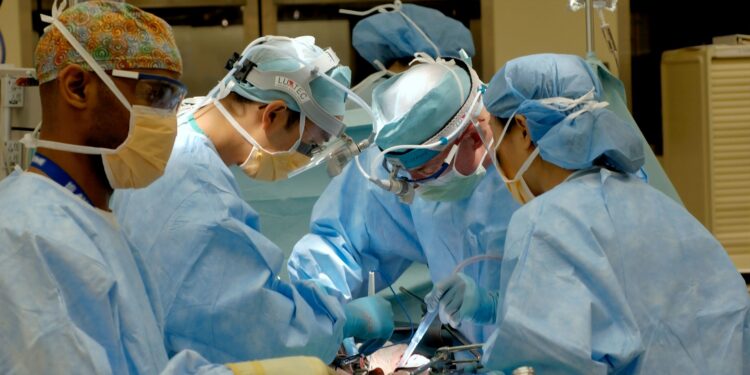They are defying odds.
Surgeons at Massachusetts General Hospital recently completed the fourth successful pig kidney transplant in the U.S., marking a significant milestone in the quest to address the shortage of human donor organs. The recipient, 66-year-old Tim Andrews, had suffered from kidney failure and spent over two years on dialysis. This transplant is part of a clinical trial approved by the FDA to test the long-term effectiveness of genetically modified pig organs in human patients. The success of this procedure represents a critical step in advancing research aimed at finding alternative solutions for organ shortages.
Before the surgery, Andrews faced serious health challenges, including a heart attack, and required regular dialysis treatments that left him fatigued and reliant on a wheelchair. After discussing the possibility of a transplant, he underwent physical therapy to improve his strength for the surgery. Remarkably, just one week after the transplant, Andrews was well enough to leave the hospital, reporting a dramatic improvement in his energy levels and overall health.
This latest transplant involved a kidney from a pig genetically modified with 69 gene edits to reduce the risk of organ rejection and viral infections. The procedure was part of a larger effort by several biotech companies, such as eGenesis, to develop genetically engineered pig organs that are compatible with human patients. While some patients, including Andrews, have recovered well after receiving pig kidneys, there have also been challenges, with two recipients passing away after similar transplants last year.
Despite the promising results, questions remain about the long-term viability of pig organ transplants, as well as issues related to cost and insurance coverage. Many patients with kidney failure rely on Medicare, but it is unclear whether future pig organ transplants will be covered by government or private insurance. Nevertheless, the ongoing clinical trials are providing valuable insights, with more studies expected to begin later this year.
Dr. Tatsuo Kawai, the lead surgeon involved in the operations, emphasized the importance of learning from each procedure to improve future outcomes. While there is still a long way to go before pig organ transplants become a widely available solution, the success of this latest transplant marks an important step forward in developing a sustainable, long-term answer to the organ shortage crisis.

































Discussion about this post